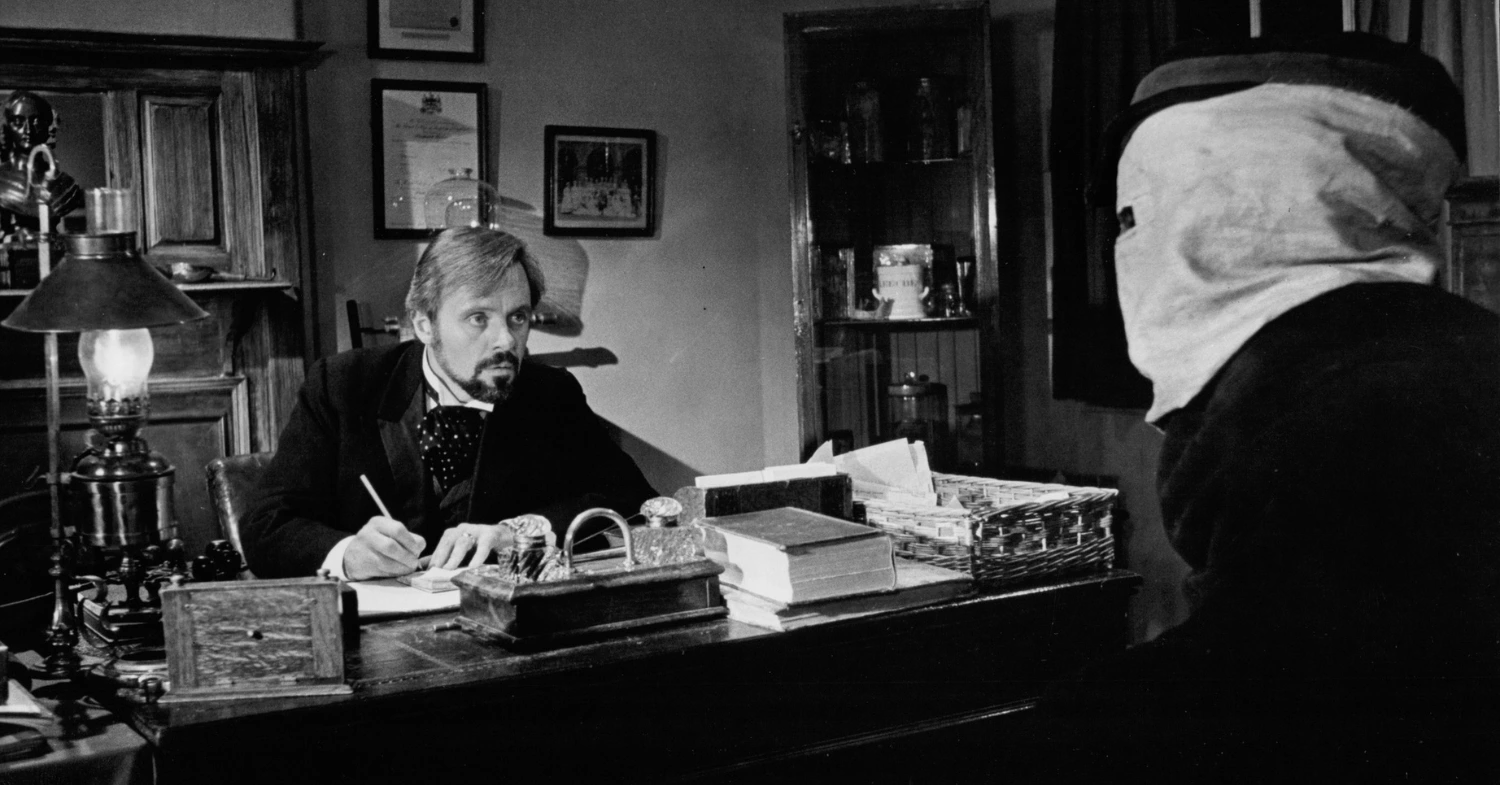The Elephant Man is both the most accessible, straightforward drama that David Lynch has ever made, and his biggest outlier (with close competition from The Straight Story). I suppose those two go hand-in-hand considering the director’s noteworthy style and disregard for formula and narrative. But The Elephant Man still has all of the sheer technical ability and hallmarks of a Lynchian story, even if squeezed into a movie a bit more palatable to a general audience.

And that’s not to diminish any of the accomplishments of The Elephant Man, either on screen or in critic’s circles as the film has only grown in with each passing restoration – even as The Elephant Man was widely celebrated upon its release, claiming 8 Oscar nominations at the 1981 awards ceremony. Cinematography, make up and effects, and key central performances come together to create a story that’s easily felt and endlessly engaging. And I find myself drawn to it more and more with each re-watch.
That’s because The Elephant Man is incredibly beguiling and bludgeoning in equal measures. The movie boasts a cloudy, stark black-and-white color palette much like David Lynch’s debut film Eraserhead. Lynch is an artist first and filmmaker second, and his attention to detail is felt within the various sets, from greasy traveling freak show cages to classrooms and medical wards. Lynch explores a wide variety of spaces to make The Elephant Man come to life. It all feels timely and timeless in equal measures, as if you can transport back to this time period without feeling like the film is dated one bit.
The two key performances come from Anthony Hopkins (The Silence of the Lambs, The Father, Armageddon Time) and John Hurt (Alien, Snowpiercer). Hopkins plays Frederick Treves, a doctor who takes the so-called “Elephant Man” John Merrick from the freak show to work in the hospital. Hurt plays the titular kind-hearted man with sever deformities that has ostracized him from society. He’s thought to be intellectually dull because of his physical appearance (one that he keeps under a hood for the first act of the film), but Treves soon realizes his abilities to comprehend rigorous text and communicate with those around him.
For someone like David Lynch who is well known to mess with an audience’s mind because of his disinterest in straightforward storytelling, it’s fascinating to see him toy with an audience’s heart instead, leaving the plot details front and center in a manner that is easier to comprehend then nearly any of his other movies. It’s a faithful adaptation of source material that strives to understand the human instinct to distrust those that are different regardless of character or experience.
Anthony Hopkins gives an outstanding leading performance as he’s able to command the screen without dominating it; Treves never overshadows Merrick. In fact, the tandem of Hopkins and Hurt feels effortless and natural, as if the two have appeared in dozens of movies together prior to this releasing in 1980.
It’s not necessarily my favorite of David Lynch’s movies, but The Elephant Man provides a needed break from his audacious side. The movie was so well-regarded that it nearly landed him the director’s chair for Return of the Jedi (and ultimately did land him it for the much maligned, recently reclaimed 1984 adaptation of Dune). Lynch has always been one for the theatrics, but every once in a while, he just has to tug at your heartstrings.
Score: 8/10
The Elephant Man (1980)
- Cast: Anthony Hopkins, John Hurt
- Director: David Lynch
- Genre: Drama, History
- Runtime: 124 minutes
- Rated: R
- Release Date: October 10, 1980
- Movies Like The Elephant Man: The Curious Case of Benjamin Button, About Schmidt, Poor Things, More Movies Like The Elephant Man
Read More Reviews for David Lynch Movies
Cinephile Corner has reviewed the following David Lynch movies: